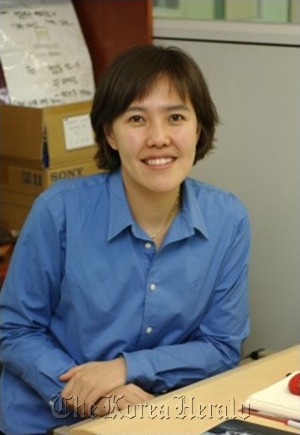A number of veteran program directors at major television networks are moving to new cable channels in pursuit of higher salaries and a creative work environment.
Yeo Woon-heok, producer of MBC’s hit program “Goldfish,” quit the company last week to work for an entertainment cable channel jTBC, the broadcast arm of the Joongang Ilbo, one of the major dailies.
The channel recently gained a license for general programming from the government.
Lim Jung-ah, another veteran producer whose works included popular survival show “Star Audition” is also heading to the cable channel.
The mass exodus of producers at government-funded KBS is also grabbing attention.
 |
Kim Seok-yun |
 |
Lim Jung-ah |
Kim Seok-hyun, producer of long-running comedy program “Gag Concert” shown on KBS2, has already moved to entertainment channel CJ E&M owned by food giant CJ while Kim Si-kyu, producer of music show “Yun Do-hyun’s Love Letter,” joined jTBC.
Kim Seok-yun, producer of KBS drama “Old Miss Diary” and Cho Seung-wook, creator of “Yahaengsung” (Star Night) also decided to go to jTBC.
Lee Myung-han, producer of KBS variety show “One Night Two Days” has also agreed to join jTBC.
“Rumors of more producers transferring to other general programming channels are spreading,” an official at KBS was quoted by saying.
Observers say a number of entertainment producers are transferring because they are offered higher compensation, a freer work environment and more opportunities.
JTBC probably has offered 1-1.2 billion won ($930,000-$1.2 million) to producers and 1.5 billion won for senior producers, insiders say.
The labor union at KBS said last week that producers expressed their frustration after they were asked to create pro-government special programs last year regarding the sinking of the Navy ship Cheonan and the Seoul Group of 20 summit.
Others point out that the changing media environment may have influenced producers’ sudden departures.
“Producers were reluctant to transfer to other channels before. But now, they are likely to seek opportunities at new channels for general programming than staying passive at conservative terrestrial TV stations,” a producer at Seoul Broadcasting Stations was quoted as saying.
By Cho Chung-un (
christory@heraldcorp.com)









![[Today’s K-pop] Blackpink’s Jennie, Lisa invited to Coachella as solo acts](http://res.heraldm.com/phpwas/restmb_idxmake.php?idx=644&simg=/content/image/2024/11/21/20241121050099_0.jpg)